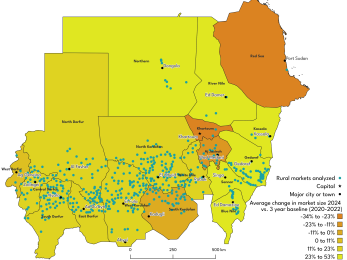The Potential Impact of Black Sea Escalations on Food Security in the Middle East and North Africa
Countries in the Middle East and North Africa have contended with food insecurity for decades as their populations grow alongside increased demand for imported foodstuffs. This has left many countries across the region heavily or partially dependent on imported grains, in particular those exported through the Black Sea.
This dependency came to the forefront in 2022 when grain shipments from Ukraine were at risk of being completely halted prior to the Black Sea Grain Initiative (BSGI) being struck. This paper examines the risks facing certain Middle Eastern countries considering a series of conflict escalations affecting Black Sea grain exports following Russia’s withdrawal from the BSGI in July, with a focus on immediate and longer-term consequences.
- Should a major conflict escalation affecting Black Sea export infrastructure take place, it is likely that significant international grain shortages or price increases could threaten and/or exacerbate food security across the region.
- Broader global system dynamics could, in concert with an escalation of conflict in the Black Sea, exacerbate or sustain severe price shocks across a range of essential food commodities.
- Even should a de-escalatory trajectory play out in the coming months, events since July will nonetheless continue to have negative consequences for trade through the Black Sea, namely through the high risk and associated costs posed to commercial shipping.
- Aid actors should conduct robust contingency planning to account for the possibility of global food price shocks and grain shortages in the fragile contexts in which they work, which will drive needs and stretch available capacities to respond in an increasingly constricted funding landscape.


